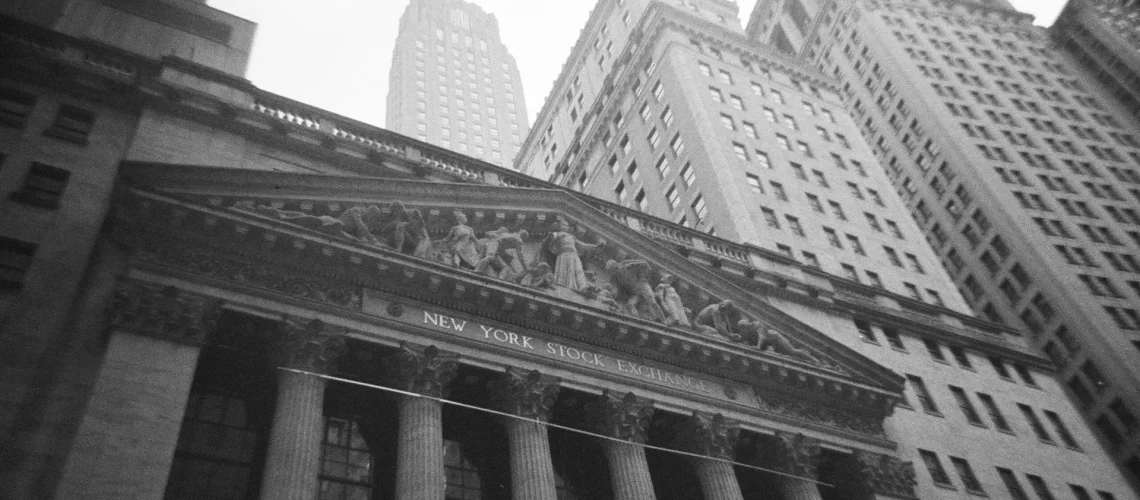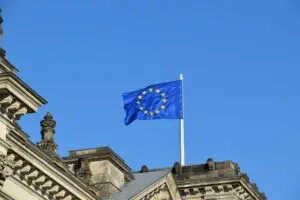In early April 2025, Trump unexpectedly imposed a sweeping tariff package against several trade partners, including protective tariffs of around 20% on EU imports and sharp increases on goods from China. The reaction on the stock markets was immediate: The U.S. stock market plummeted in the days following the tariff announcement. Even the serious Tagesschau referred to it as a “stock market crash” caused by Trump’s tariffs . Globally, prices tumbled, investors fled to safe havens – at one point, there was a rush to sell U.S. government bonds, and fears of a potential financial crisis were raised . This sharp market plunge (a stock market crash) shows how sensitive the global financial system is to Trump’s aggressive trade policy. Professional investors might have considered short selling – betting on falling stock prices by selling borrowed shares – to profit from the downturn. Because on the stock markets, it was clear: Trump’s tariff shock was toxic for stock prices.
But what happened next is unprecedented, even by Trump’s standards. Just a few days after the tariff shock, the president suddenly reversed course. On April 9th, Trump announced that the new tariffs would be suspended for 90 days – seemingly a sudden about-face, which many saw as a political turnaround move. Only China would continue to be penalized: for Chinese imports, Trump even raised tariffs to an astronomical 125% . The surprise suspension of tariffs acted like adrenaline on the stock markets: An unprecedented rally began. On Wall Street, stock prices shot up sharply – the Dow Jones Index jumped nearly 8% in a matter of hours, the broad-based S&P 500 gained about 9.5%, and the tech-heavy Nasdaq Index exploded by over 12% . It was one of the strongest daily moves in modern stock market history. Globally, euphoria surged, with markets rising sharply from Tokyo to Frankfurt . Trump himself triumphed, claiming it was “the greatest day in financial history” when the markets soared again . In fact, the U.S. stock market regained about $4 trillion in value that day – around 70% of the losses from the previous four trading days had been recovered . What started as a short-lived stock market plunge had suddenly turned into a rally. But this striking turnaround left many market observers with a bad feeling.
The reason: Trump himself initiated this surge in stock prices with a striking action that critics are calling a possible insider move. Just a few hours before his official tariff reversal, the president posted a remarkable message on his social media platform Truth Social: “This is a great time to BUY!!! DJT”, Trump typed on Wednesday morning . This seemingly spontaneous financial tip from a sitting president raises questions. Did Trump already know at that time that he would suspend the tariffs? After all, he announced the very same move just four hours later – giving his own “Buy now!” advice a turbo boost. Investors who had followed Trump’s cue could quickly rake in huge profits. Democratic Senator Adam Schiff smelled a rat: Trump’s back-and-forth on the tariffs had created “dangerous opportunities for insider trading,” Schiff publicly warned, asking: “Who in the government knew in advance about Trump’s policy change? Did anyone buy or sell stocks and profit at the public’s expense?” . Other Democrats are calling for an investigation. Even Richard Painter, former ethics lawyer in the White House, believes Trump’s behavior is extremely risky: The president is clearly wielding the power to move the markets, but should “be more careful,” as stock market laws strictly prohibit insider trading . The accusation is clear: Trump might have intentionally manipulated the market for personal profit, benefiting from his own policies. Trump himself denied any improper intent. When asked when exactly he decided to suspend the tariffs, he vaguely mumbled something about “this morning… been thinking about it for a few days” . His press secretary defended Trump’s social media tip as the president’s duty to “calm the markets” . But many observers were unconvinced – the timing coincidence in favor of those who had received Trump’s insider tip was too glaring.
Especially sensitive: Trump and his inner circle have significant financial stakes at play, which were directly influenced by this tariff flip-flop. One example is Trump’s own media and tech company, Trump Media & Technology Group (TMTG), the parent company of Truth Social. Its stock price soared by a staggering 22.7% on the day of the tariff suspension, double the rise of the overall market . Clearly, investors were speculating that Trump’s mysterious “DJT” in the post might refer to his company’s stock ticker – and they jumped in droves. Trump himself holds (through a trust managed by his son Donald Jr.) 53% of TMTG’s shares, so his personal fortune grew by $415 million overnight due to this stock price surge . In other words, the president directly profits from market reactions to his policies – a clear conflict of interest, as he, as head of state, is supposed to be committed to the public good, not boosting his own stock prices. Adding to the intrigue, just shortly before, on April 2nd, an official SEC filing became public revealing that Trump’s company TMTG had submitted new stock registration documents. These would allow Trump’s trust to sell up to $2.3 billion in stock . While the company claimed this was “routine” and there was no immediate selling window , the timing still raises uncomfortable questions: Was Trump planning to cash out after a artificially induced stock price spike? – An accusation that remains in the air, even though hard evidence is still lacking. But Trump’s financial web extends beyond just his own company. Notably, the proximity to tech billionaire Elon Musk, now an informal government advisor, is striking. Tesla, Musk’s company, was one of the big winners from the tariff policy flip-flop: The stock surged by about 14% on “tariff pause day,” adding a staggering $20 billion to Musk’s wealth . What’s juicy about this: Trump had openly courted Musk and Tesla recently – just a few weeks ago, he held a praise-filled press conference for Tesla at the White House, and his trade secretary appeared soon after on conservative Fox TV, actively advising viewers to buy Tesla stock . Having a government official so aggressively promote a single stock breaks all usual protocols and feels like pure price manipulation. Musk, a loyal Trump ally, likely benefited. This event once again underscores the problematic fusion of public office and private interests in the Trump universe.
In the end, a disturbing picture emerges: A U.S. president who causes wild market fluctuations with his decisions – and at least the suspicion remains that he or those close to him could profit financially from it. The back-and-forth of sudden tariff hikes, panicked price crashes, and then the staged turnaround with price explosions seems to reek of targeted market manipulation. Critics openly call it a possible betrayal of investor trust, and demand consequences. In earlier times, as ethics experts point out, such behavior would likely have immediately triggered investigations . But whether Trump’s Wall Street magic show will actually have any legal consequences remains uncertain – after all, the president is skating on thin ice, but cleverly staying on the edge of legality. Trump hasn’t admitted to anything illegal, but the sequence of his actions sends a dangerous signal, according to law professor Kathleen Clark: Trump demonstrates “that he can effectively and unpunished manipulate the market” . If he gets away with it, it could set a dangerous precedent that further erodes trust in the fairness of the financial markets. Investors and citizens rightly wonder if a powerful politician is abusing his office for personal gain. Trump’s latest tariff episode is thus much more than just a trade and economic policy move – it’s become a lesson in potential market manipulation, conflicts of interest, and the fragility of public office integrity. The world is watching – and with growing skepticism – to see whether this risky game will be uncovered or whether Donald Trump will once again manage to get away with a political blind flight that harms others and benefits him.






